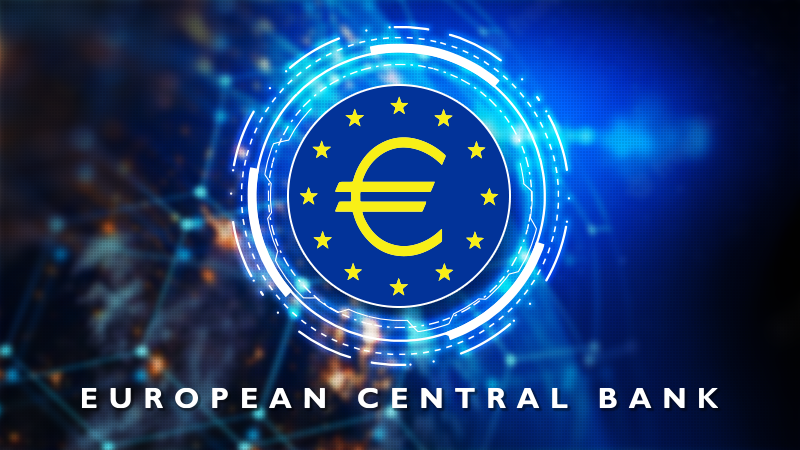ECB Cryptocurrency – All you need to know!

Digital financing has taken the world by storm. The rapid growth in customer approval and increase in the number of traders globally has led many countries to wonder and even initiate official digital versions of their currency. Here is where ECB Cryptocurrency finds its place in the global market.
Central Banks worldwide have started working on developing an implementable system of digital currency, and the The European Central Bank (ECB) has also begun to stress the need to inaugurate a digital version of the euro.
“The euro belongs to Europeans and we are its guardian. We should be prepared to issue a digital euro, should the need arise”- Christone Lagarde, President of the ECB.
According to Christine Lagarde, the digital euro serves a purpose which is that
“in the digital age citizens and firms continue to have access to the safest form of money, central bank money.”
A Breakdown of ECB Cryptocurrency
One may ask, what exactly is “Crypto Euro”? Well, here is a simplified version of it.
- It is a digital version of the legal tender (currency) accessible via banks or directly.
- The backbone of the digital currency in blockchain technology, prioritizing transaction security.
- It can facilitate faster, cheaper, and non-centralized payments across borders.
- It can improve access to legal tender where cash flow is poor.
Based on the fact that the ECB has applied to trademark the term “Digital Euro”, it is serious about entering the world of digital financing.
ECB Cryptocurrency Trends
According to the president of ECB; Christine Lagarde, the digital euro is a step to follow and partake in the following two trends set up internationally.
Allowing Change of Customer Preference
The first initiative addressed by ECB is to change consumer preference. The global pandemic of COVID-19 has shifted the finance dynamic and interest towards the digital revolution. In February 2020, in-store payments dropped significantly accompanied by an unprecedented rise in digital transactions. Therefore, the general consumer market is already accustomed to utilizing digital means of transactions.
Dominating Payments on Global Scale
Currently, there are only a few service providers in the digital market and Europe has unfortunately fallen behind. There is a gap in the digital payments’ integration with the euro. There are private agencies with an already well-established method of transactions. ECB now has to surpass the bar set by those agencies and provide a better and more competitive service to strengthen the digital euro.
Potential Benefits of ECB Cryptocurrency
According to ECB, the digital euro has the potential to benefit the economy and overall business in more than one way.
- The digital euro would allow fast, easy, and secure daily payments.
- It would allow the digitalization of the European economy.
- It would combine the flexibility of digital payments with the security and strength of the Euro.
- It will deal with the issue that arises when people chose not to use cash and do not trust outside sources of digital payments.
- The privacy of consumers will be a key priority and revolutionary in the digital world.
- The impact of digital currency will help mitigate the effect of disaster, pandemics, or any situation where cash is not accessible.
- It would allow European citizens to make deposits and withdrawals directly.
A digital euro “is becoming an obligation which, indeed, central banks – in this case, the ECB – need to carry out” as per the words of Luis de Guindos- ECB Vice President.
Potential Risk of ECB Cryptocurrency
Effectively, customers moving money to the ECB for perceived protection, effectively a digital bank run is one risk scenario. To mitigate this risk, some economists propose a cap of around €3,000 in digital euros per person, or substantially negative interest rates to discourage excessive ownership.
Crypto Euro Requirements
To make sure that the digital euro upholds the name of the European currency and market value, it should have the following traits.
- Be safe and secure
- Impartially accessible to all citizens and companies
- Able to combat potential economic events such as the European Card Outage of 2018.
- Should guarantee consumer’s privacy
At What Stage is the Digital Euro Now?
Currently, the digital Euro is in the implementation stage which started in October of 2021. According to ECB, this is a two-year-long stage that involves an investigation of how the digital euro can be potentially used, its impact on the market, potential changes in the legislation, etc.
The Takeaway
Based on the results of this analysis, the decision to either develop or drop the digital euro will be taken. As of now, the digital euro seems to be a smart move and according to many experts, it is a need if Europe wants to be a part of the future.
